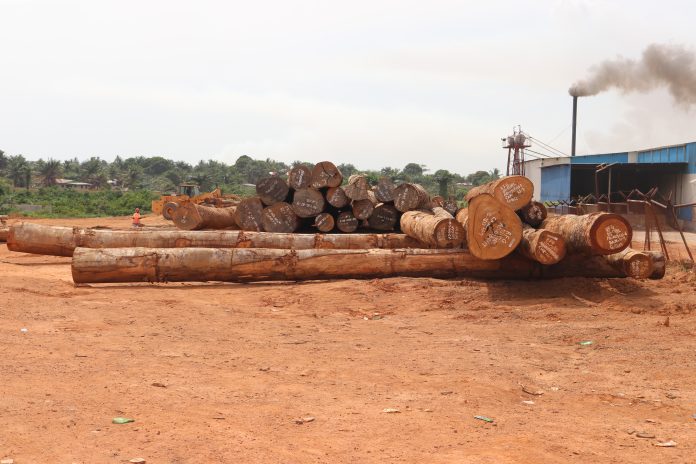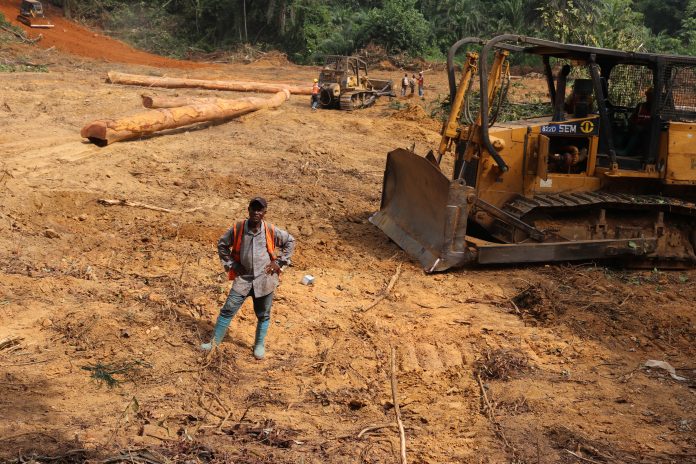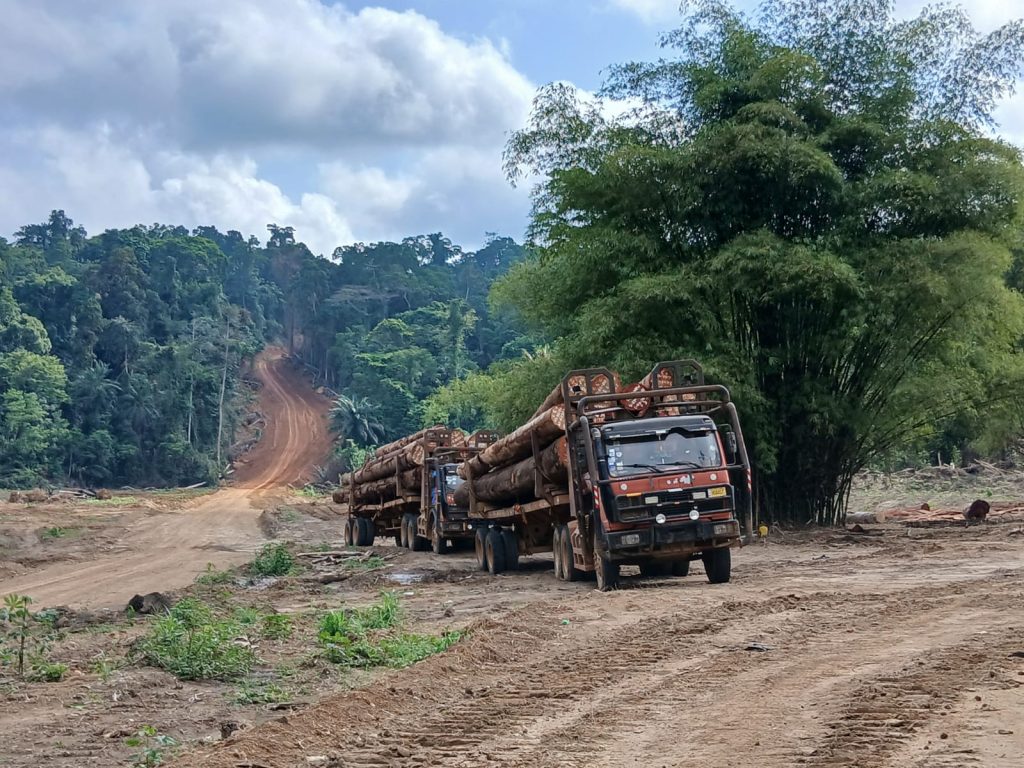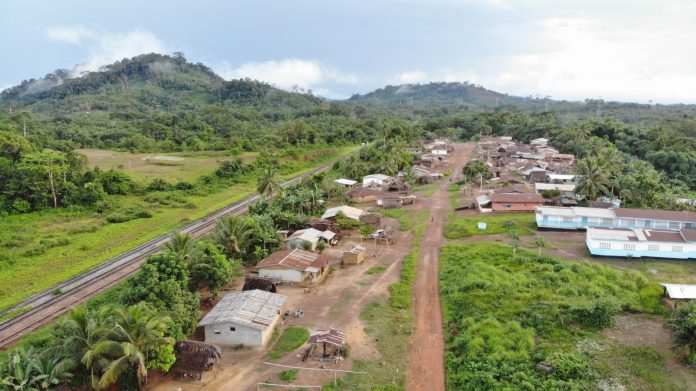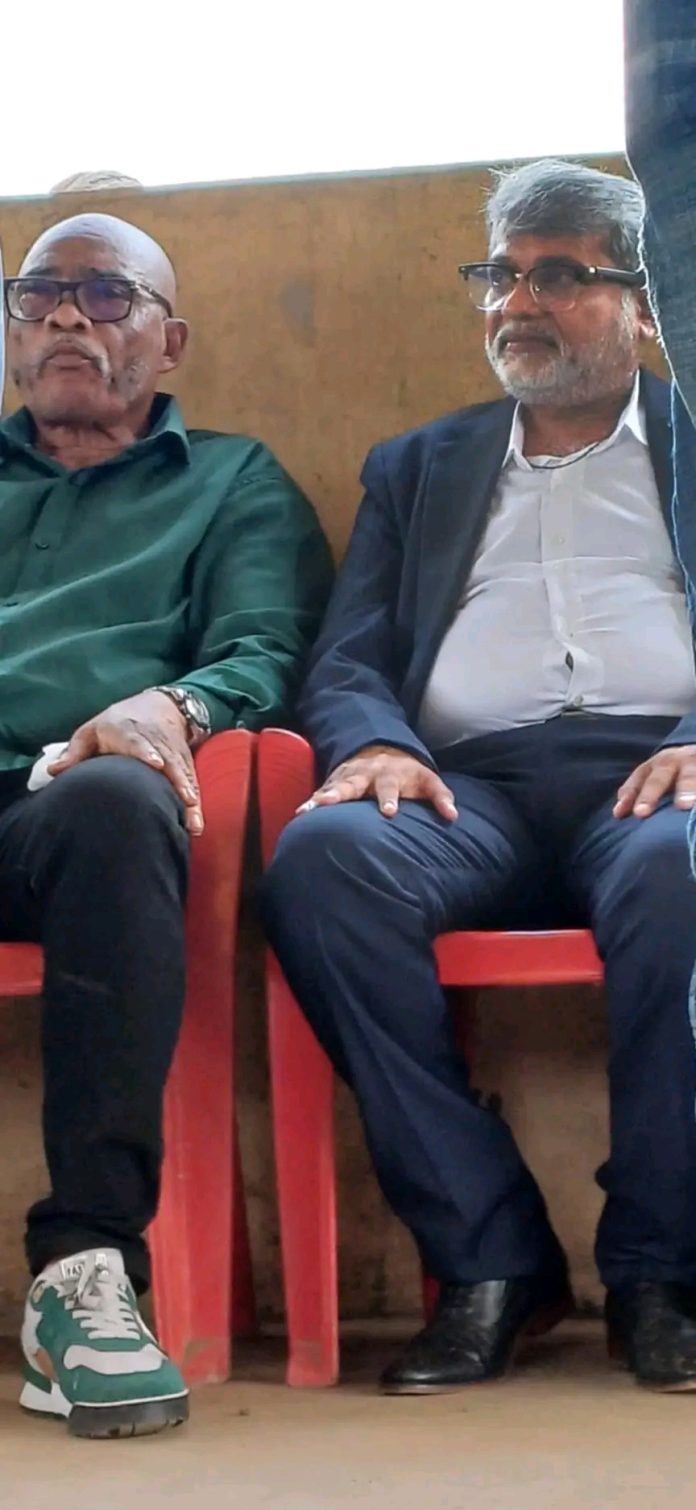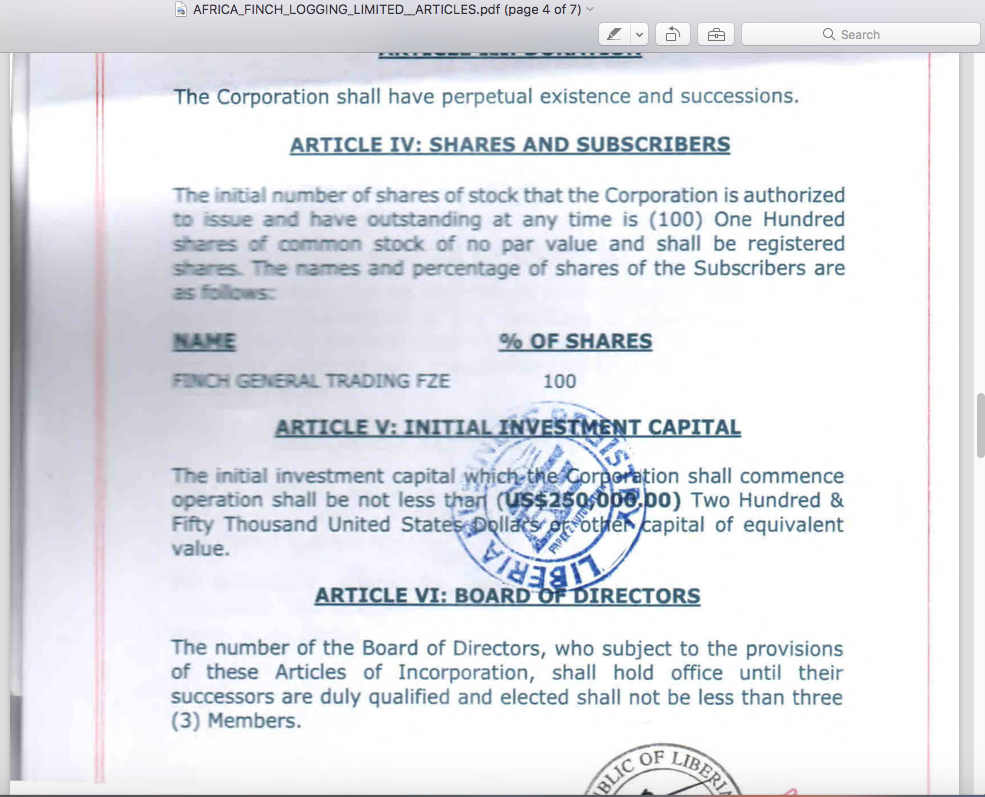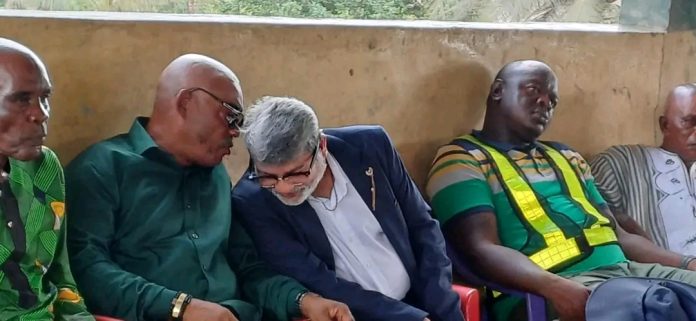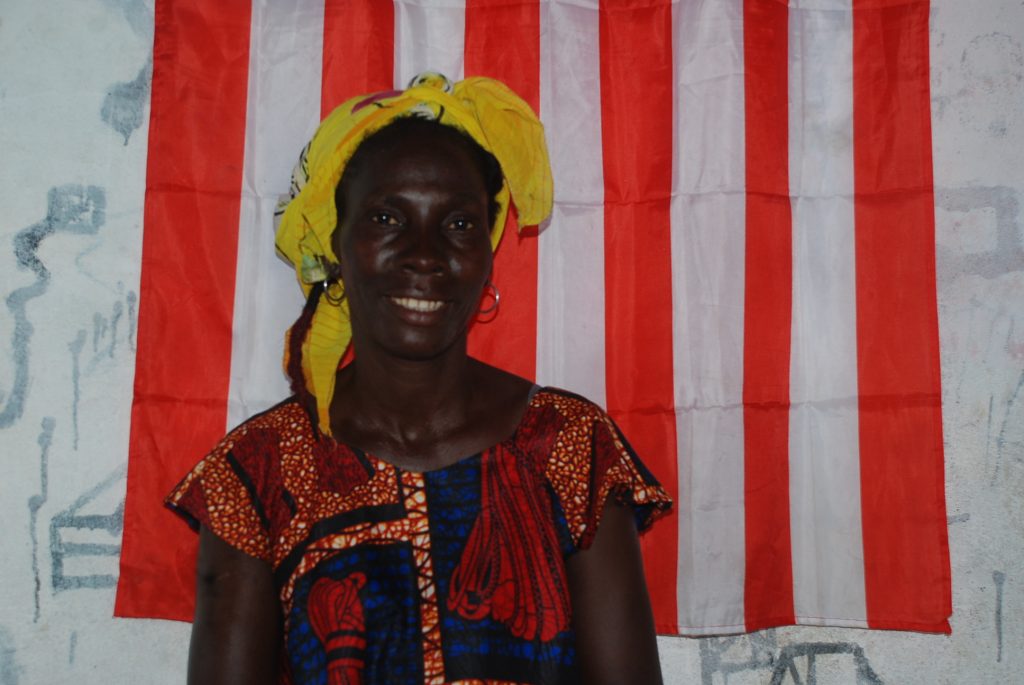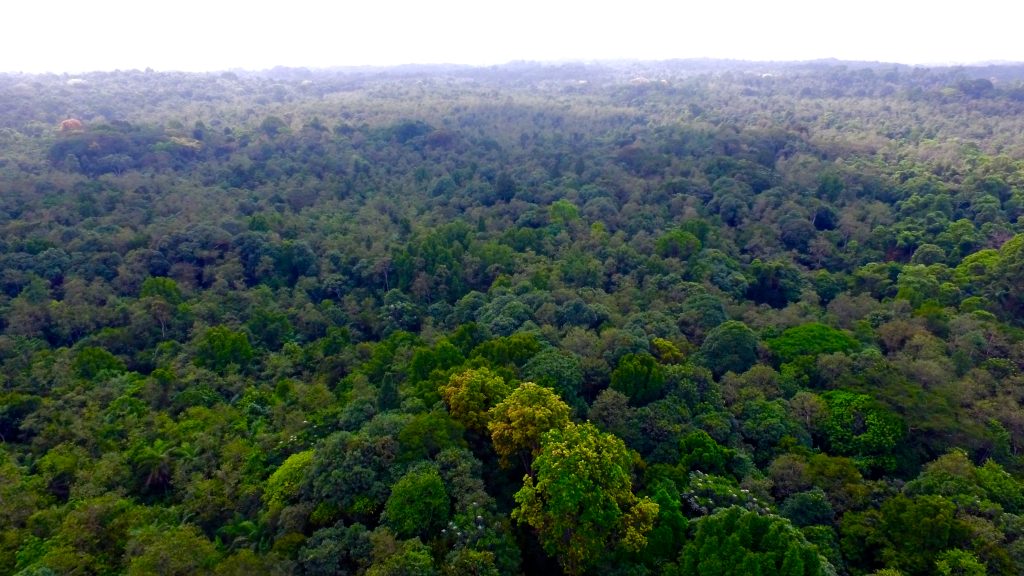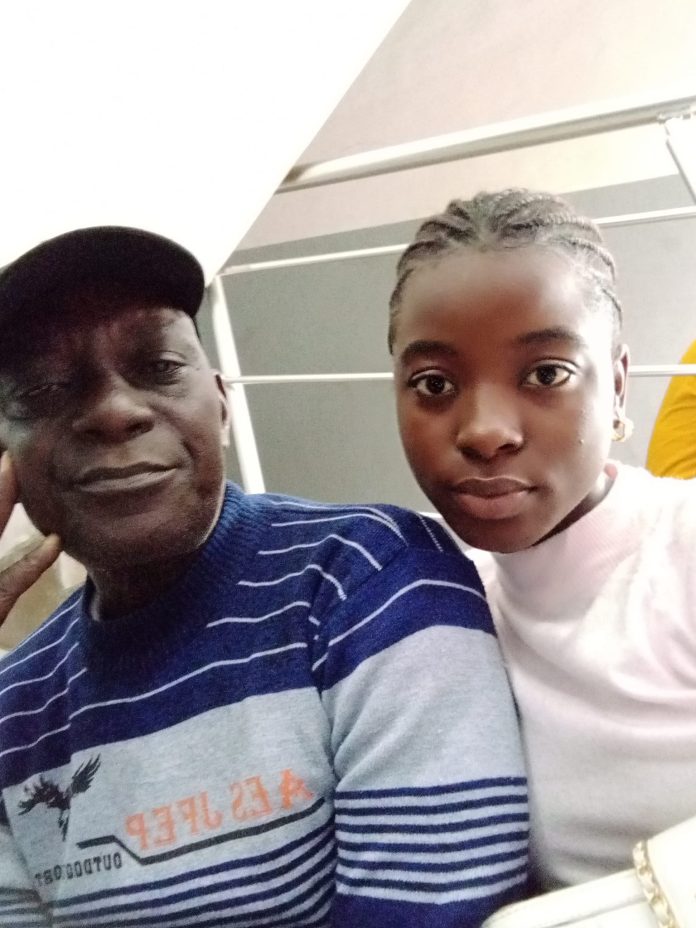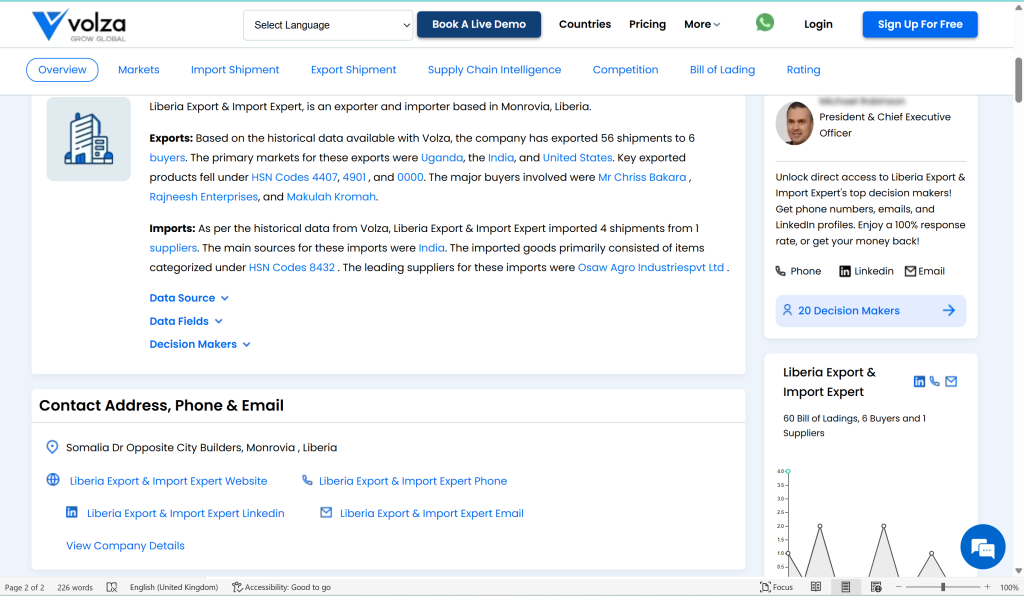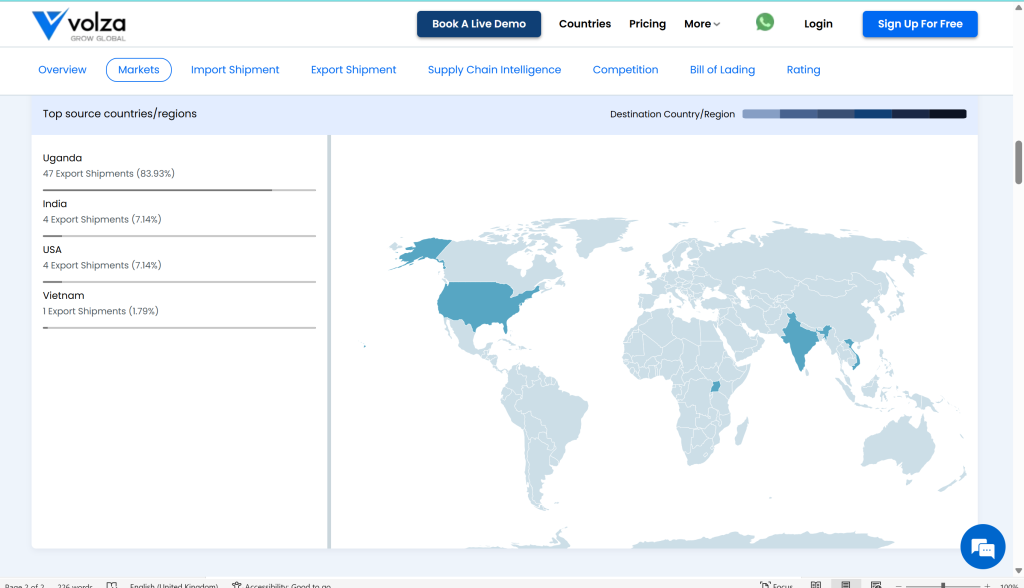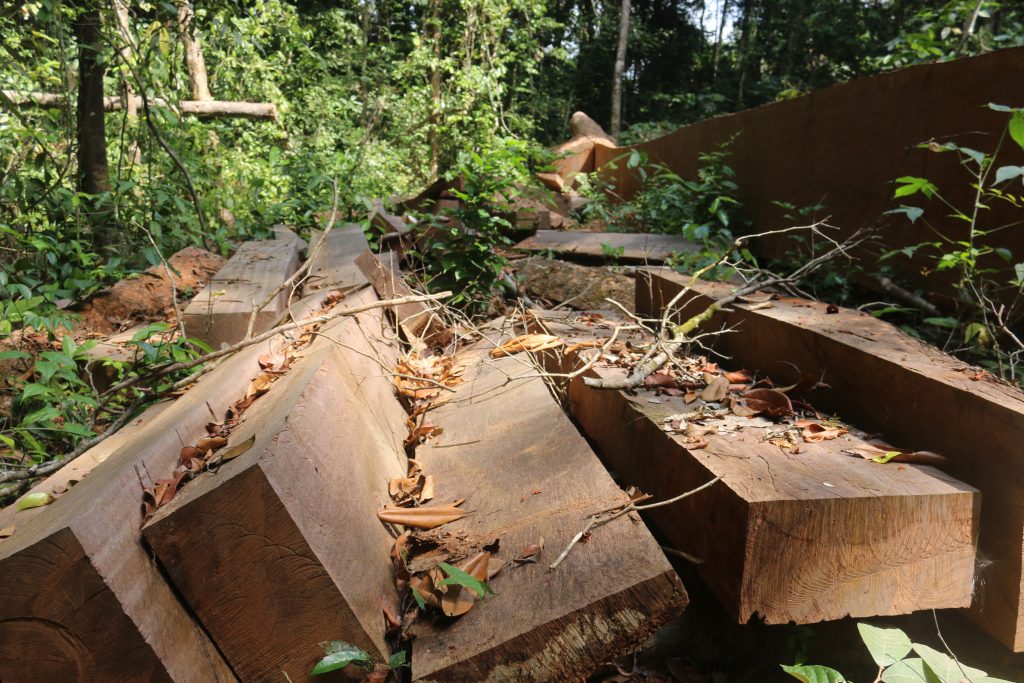Top: The plywood factory, Krish Veneer’s office, New Buchanan, Grand Bassa County. The Daylight/Emmanuel Sherman
By Emmanuel Sherman
Editor’s Note: This story is the third part of a series on illegalities associated with a newly established community forest in Compound Two, Grand Bassa County.
- FDA Managing Director Rudolph Merab illegally granted Mavasagueh in Compound Number Two, Grand Bassa, a community forest status.
- Merab approved Mavasagueh’s logging contract with C&C Corporation, co-owned and run by Clarence Massaquoi, an ineligible logger.
- Then, a Duport Road resident, Khalil Haider, wrote to the FDA to claim 3,200 acres of Mavasagueh.
- Against the law, Merab encouraged Haider to compromise his claim and bargain with Massaquoi. Another person, Amos Lewis, also wrote Merab, claiming the same land as Haider, but his claim has yet to be addressed.
- Amid these issues, Merab approved Massaquoi’s harvesting, with the logger selling timber to Krish Veneer Industries, an illegitimate sawmill located on Merab’s family land in Buchanan.
- But that is just one of the multiple conflicts of interest involving the FDA Managing Director. Turns out, Merab is related to Massaquoi and Haider, likely explaining why he failed to enforce the law.
VAMBO, Grand Bassa County – Everything about this company’s contract with a new community forest is illegal.
And there are lots of problems, too, based on documents and interviews. The Forestry Development Authority skipped several legal steps before granting Mavasagueh a community forest status. Then the FDA approved Mavasagueh’s logging contract with C&C Corporation (CCC) despite the company’s majority shareholder being barred from forestry activities over his wartime activities. The FDA Managing Director, Rudolph Merab, encouraged a man claiming 3,200 acres of Mavasagueh’s 26,003-hectare woodland to unlawfully compromise. Then, a sawmill linked to the company is illegitimate and engages in illegal timber exports.
Now, a DayLight investigation has established that the Mavasagueh-CCC contract constitutes multiple conflicts of interest involving Merab. The investigation found that Merab is related to CCC’s co-owner, and that the sawmill operates on his family’s property.
These conflicts of interest likely explain why the FDA boss approved CCC’s contract amid the sea of illegalities, ignoring a civil society critique and failing to take any action against the sawmill.
Merab’s conflicts of interest violate the Code of Conduct for Public Officials, a key legislation for the Boakai administration. Merab did not respond to queries on his dual relationship with Massaquoi and other issues in this story.
Merab and a logger
By his admission and LinkedIn profile, CCC’s CEO Clarence Massaquoi, worked with Merab during the second half of the Liberian civil conflict. “I worked with Merab from 1999 to 2007 in a managerial role,” he told The DayLight in January.
Massaquoi’s wartime logging activities disqualify him and the CCC, but the FDA only reviewed the CCC’s financial records, not his wartime activities. War loggers are barred from engaging in forestry unless they confess their roles in Liberia’s bloody conflict (1989 – 2003) and collaborate with the FDA to repay stolen or unpaid funds, according to the Regulation on Bidders Qualification. No wartime logger did that.
Having known Massaquoi for decades, Merab approved his ex-employee’s contract with Mavasagueh, ignoring calls from a group of civil society organizations to re-demarcate and remap the community forest. A previous DayLight investigation corroborated the finding that the FDA did not raise ample awareness, and that public participation in the process was inadequate. Residents only reviewed Mavasagueh’s contract with CCC some seven months after it was signed, and weeks after Merab approved Massaquoi’s harvesting.
In addition to their wartime association, Merab and Massaquoi are related. Rose James, Merab’s deceased mother, was a Hill. She was related to the Holts, Massaquoi’s maternal family, according to Khalil Haider, a Duport Road resident, who said he was related to both men.
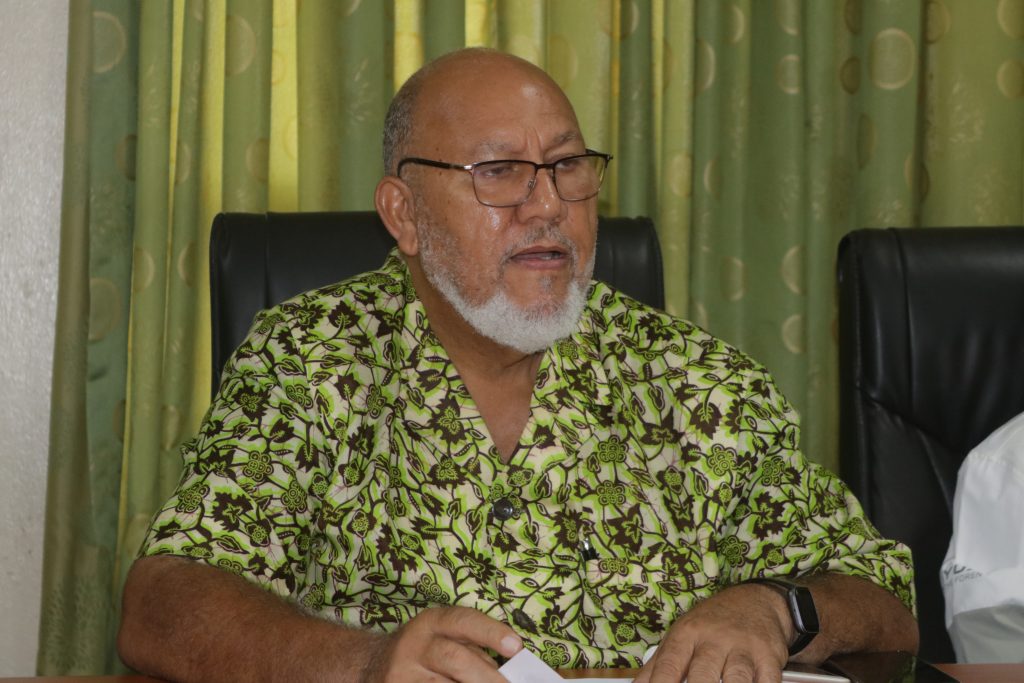
Haider’s late mother, Rosa Dillion, had a relation with the Hills. “My mother and Merab’s mother were cousins, and both families lived separately on Tubman and Church Streets [in Buchanan],” said Haider.
“Massaquoi and Merab are related, and Merab is my cousin. We are all related,” said Haider.
His account is backed by an obituary of Edward Merab, the FDA boss’ late elder brother, who died in the United States in 2020. Another obituary of Sylvia Holt, the matriarch of the Holts, proves that the families are related.
Private land in a community forest
Before CCC began harvesting, Merab received a communication from Haider. In the letter, Haider claimed that he owned 1,295 hectares of Mavasagueh’s 26,003-hectare rocky forestland. The plot is located between Mt. Findley and the St. John River. By that time, CCC’s harvesting had already been approved. Haider had first told the FDA about his claim in 2018.
This was no welcome news for Massaquoi or Merab. The FDA would have to cut off the problematic plot and redo the process, including new mapping, demarcation, and other elements, based on the Community Rights Law Regulation. It could involve coordinating with the Liberia Land Authority and the Ministry of Mines and Energy, a rarity among public institutions.
As a way to avoid that outcome, Merab encouraged Haider to compromise with Massaquoi to continue the operations, according to Haider and Massaquoi.
“The FDA asked me to see Mr. Haider. I met Haider and we talked,” said Massaquoi in a January interview with The DayLight. “Haider and I settled, and said he would work with the community and me, so the FDA should let the document be processed.”
Haider corroborated that account, disclosing that Massaquoi gave him US$1,500. “I assisted him when he wanted to go to the hospital,” said Massaquoi, calling Haider his stepbrother.
In an interesting turnaround, Haider now claims that a letter the FDA hinged its authorization of Massaquoi’s operations was forged. “I did not write that letter,” Haider said. “I know nothing about it. “He faked the whole letter and my signature.” Haider has written the FDA another letter requesting a redress after his initial letter went unanswered.
Massaquoi did not reply to questions for comments on the allegation. However, in the January interview, he claimed Haider had instructed him to write the letter on his behalf, which Haider signed.
Long before this, Amos Lewis, a Marshall, Margibi resident, wrote the FDA, claiming the same land as Haider. Both men’s deeds date back to Tubman’s era. Moreover, and more importantly, Lewis’s claim cements the reality that Mavasagueh overlaps with private land. This proves that the Mavasagueh process was flawed.
A sawmill on Merab’s family plot
Krish Veneer Industries’ operations present another conflict of interest for Merab. The sawmill is situated in Buchanan on a plot belonging to the Hills, Merab’s maternal family. It is infamous, as the Timber Management Corporation, operated by the Dutchman and eventual war criminal Guus Kowenhoven, occupied the facility between 1991 and 1997, Global Witness reported.
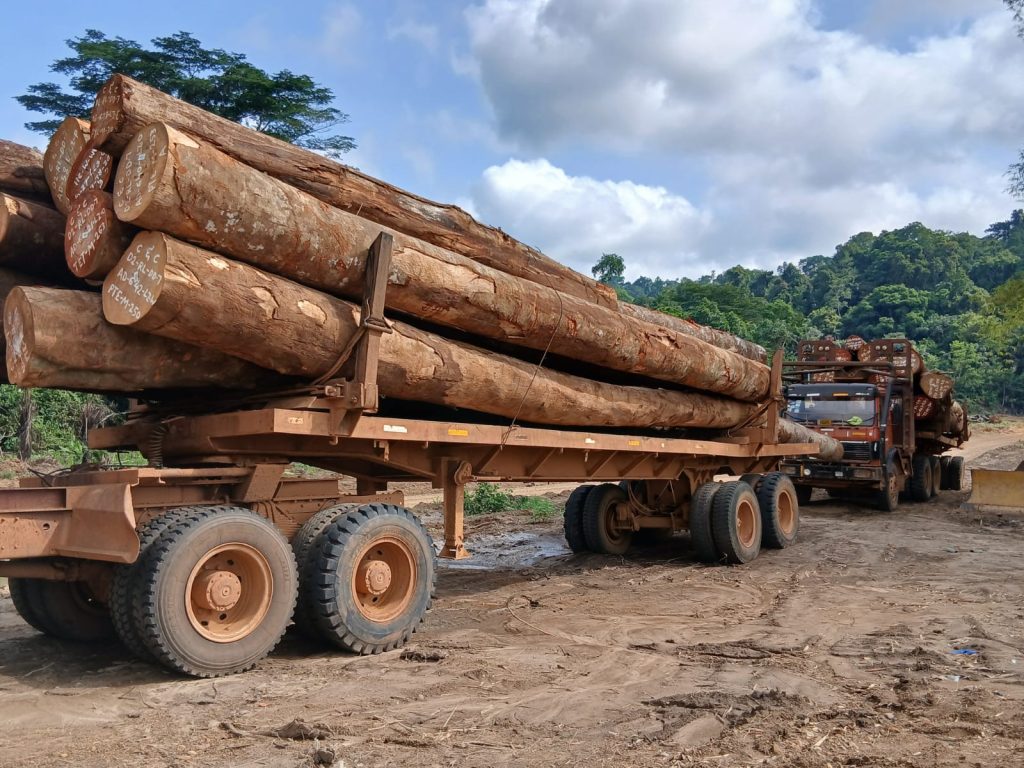
“That place is for Merab’s mother and her family,” Haider said.
“Stephen Hill is managing the property; he is a cousin of Merab, and the plywood factory was there long before Merab,” added Massaquoi. “Merab is from Bassa, and the property is owned by his grandfather,” said Massaquoi.
There is more, though. Massaquoi is also Krish’s general manager, FDA records show. In his January interview, Massaquoi disclosed that Krish was crucial to his operations in Mavasagueh. “I have buyers. I can sell to my plywood factory. My buyers are in Buchanan,” said Massaquoi.
The evidence shows that Merab is caught between his relationships and his duty to enforce forestry laws and regulations. The evidence shows that his relationships are winning the conflicts.
Krish operates as a partnership in breach of the Regulation on Bidder Qualifications. The 2007 regulation states that a sawmill must be a corporation, as a partnership has a limited lifespan and liabilities. The provision stemmed from the Public Procurement and Concession Act, carved to safeguard against the government’s revenue loss.
Last year, the FDA authorized Krish to export 210 illegally harvested logs to Singapore. LiberTrace, the timber tracking system, found that all the logs had issues. Krish made at least three other shipments to that Asian country and the UAE, which had approximately 20 to 30 percent illegal timber.
FDA Deputy Managing Director for Administration and Finance Victor Kpaiseh told Okay FM that the agency would act. However, some two months later, Krish’s remains a partnership. The Public Procurement and Concession Commission (PPCC), which enforces contracts, has asked the FDA to investigate, according to a letter seen by The DayLight.
Meanwhile, with a workforce of 300 people, Krish is one of the most active companies in a generally quiet industry. It produces between 25,000 to 27,000 cubic meters per year, according to an official environmental report. From April and December last year, Krish exported at least 794 logs, even though its products are veneer—a decorated wooden material—and plywood.
Merab’s relationships with Massaquoi, Haider, and Krish, with the string of offences associated with those relationships, break the Code of Conduct. The code prohibits any conflict of interest, defined as “when a public official… exploits a relationship for personal benefit.” It guides government officials against “situations of conflict that impair, or may likely impair, the performance of their duties.
“No public official… should use an official position to pursue private interests that may result in a conflict of interest.”
This story was a production of the Community of Forest and Environmental Journalists of Liberia (CoFEJ).

